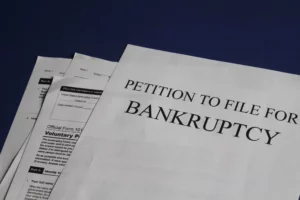Intellectual Property laws protect inventions, designs, artistic works and brands. They incentivize innovation and prevent infringement.
While Thailand is making efforts to align its IP protection with international standards, counterfeiting and piracy remain issues, especially in online markets. Regularly monitor local and online platforms for counterfeit products and unauthorized use of your IP.
Patents
The Thai Patent Act aims to ensure that inventors’ rights are protected while encouraging invention and technological development. Thailand also aims to align its patent system with international intellectual property standards. For example, the country is a member of the Paris Convention, which allows applicants to claim priority based on prior foreign filings, and it is also a signatory of the Patent Cooperation Treaty.
In order to qualify for a patent, an invention must be new and have industrial applicability. Additionally, the invention must be capable of being manufactured in a reasonable amount of time and cost, and it must be non-obvious and not result from prior art or scientific discoveries. Furthermore, the invention must not be excluded by any statutory exemptions. Moreover, any patented product or process must be disclosed to the public.
Anyone who infringes on a patent will face civil and criminal penalties, which can include fines and/or imprisonment. In addition, the infringer can be ordered to pay compensation to the patent owner.
Under the Patent Act, anyone may oppose a patent application during both pre-grant and post-grant proceedings. During pre-grant opposition, any interested party can file observations and counterstatements within 90 days from the publication date of the application. A patent can be granted for up to 15 years in Thailand, and registered design and petty patents enjoy up to 10 years of protection.
Copyrights
In an era when copyrights can be easily replicated with the click of a mouse, Thailand’s robust IP protections prioritize originality. The country’s meticulous patent registration process ensures that inventions and breakthroughs are thoroughly protected and separated from generic offerings, while copyright laws protect the authors of creative works.
As a member of the World Trade Organization, Thailand abides by international intellectual property standards established by the Agreement on Trade-Related Aspects of Intellectual Property Rights (TRIPS). In addition to the TRIPS agreement, the country is also a signatory to the Patent Cooperation Treaty and the Madrid System for International Registration of Marks, both of which facilitate international patent and trademark applications.
Copyrights in Thailand cover all “original works of authorship” including literary and dramatic work, musical work, sound recordings, pantomimes and choreographic works, architectural work, pictorial and graphic works, sculptural and other artistic works, computer programs, motion pictures and other audiovisual works, and sound and video broadcasting works. In addition to granting exclusive rights to the creator, copyright law also confers moral rights on authors, protecting their integrity and reputation.
Another aspect of Thai intellectual property law is Geographical Indications, which designate a product’s quality, reputation, or other distinctive characteristics as originating from a specific region. Such rights help to strengthen brand protection, which in turn bolsters the economy and enhances investment opportunities.
Trade Secrets
Understanding the nuances of intellectual property in Thailand is more than a legal requirement; it’s a strategic imperative. Whether you’re innovating, building an investment strategy, or fortifying existing assets, a clear knowledge of the country’s IP landscape will protect your investment against infringements.
Thailand’s intellectual property laws include a wide range of non-registrable rights, such as trade secrets and copyright, in addition to patents and trademarks. The Department of Intellectual Property oversees the protection and enforcement of all IP rights.
Under Thai law, trade secret infringement occurs when confidential information is disclosed or deprives the owner of economic advantage. This could include equipment drawings, chemical processes and formulations, manufacturing procedures, marketing records including consumer lists, and other business information deemed as confidential. The law offers lifetime protection, but a duty of confidentiality and secrecy applies.
Legally, the right holder must prove infringing behavior beyond a reasonable doubt. Infringement actions may be initiated for the benefit of the right holder, or on behalf of third parties who are victims of such infringement. In the case of an alleged infringing company, natural persons associated with the infringing company (such as legal representatives, beneficial owners, and key management staffs) can also be held liable under certain conditions. This is particularly common in cases of cybertheft or industrial espionage.
Enforcement
Getting results in Thailand for IP issues requires legal acumen, practical strategy and sometimes creative problem-solving. Preventive action can include registering your rights (especially trademarks and patents), engaging local lawyers for enforcement, forming alliances with other brands or NGOs to coordinate police raids, and educating partners and end-users to report infringements. It also helps to make sure that your Thai business partners and customers know that you take IP seriously – this can be effective in deterring them from dealing with knockoffs. Engaging with industry groups, such as a trade association or even the IP attache at an embassy, can amplify your efforts and provide additional insight or informal support.
When an infringement occurs, a lawyer will advise on whether civil or criminal action makes sense. Criminal actions often yield faster results than civil cases and can include a police raid. The lawyer will also help with intelligence and logistical support (such as transportation to a raid location) to expedite matters.
Monetary damages may be awarded for IP infringement in Thailand. This can be a substantial amount, especially in cases of willful infringement. Historically, courts in Thailand have been conservative in awarding large amounts for IP cases, but that trend is changing – the recent case of Luckin Coffee (over 10 million THB) suggests that higher awards are becoming more common.
Related posts:










